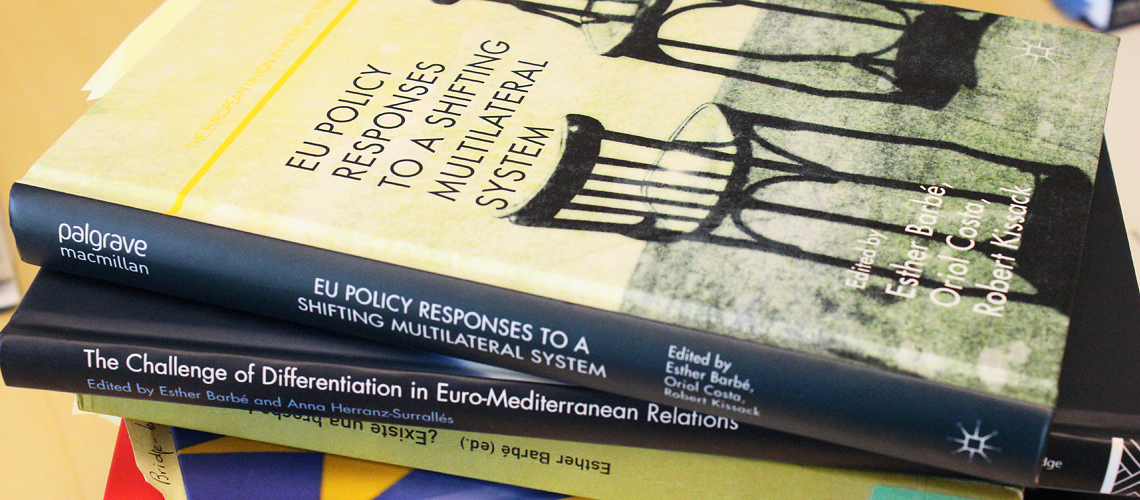
The book ‘EU Policy Responses to a Shifting Multilateral System’ has been released by Palgrave editorial. The work is edited by EU-IANUS researchers Esther Barbé (IBEI), Oriol Costa (IBEI) and Robert Kissack (IBEI) and investigates the EU’s policy responses to the transformation of the distribution of power in the international system.
In its core content, the book includes case studies on important multilateral institutions such as the United Nations Security Council, the International Monetary Fund, the World Trade Organization and the International Criminal Court, as well as key policy areas such as energy, climate change, nuclear non-proliferation, and human rights. It counts with the participation of other EU-IANUS researches such as Benjamin Kienzle, Anna Herranz-Surrallés, Gemma Collantes-Celador, Patricia Garcia-Duran, Montserrat Millet and Jean Grugel. Jan Orbie, Michèle Knodt, Natalia Chaban and Knud Erik Jørgensen have also collaborated.
This book explores how the EU, as an international actor, is adapting to recent transformations in the multilateral system. The international identity of the European Union is built upon its support for effective multilateralism and its commitment to core norms and values. Until recently, there was no need to choose between these goals. Emerging powers in the international system are not only demanding more power in multilateral institutions, but also sometimes seeking to influence their purpose and function, away from those championed by the EU. This presents a dilemma for EU foreign policy – framed in this edited volume as either accommodating changes in order to support multilateral institutions or entrenching the EU position in order to uphold values.

